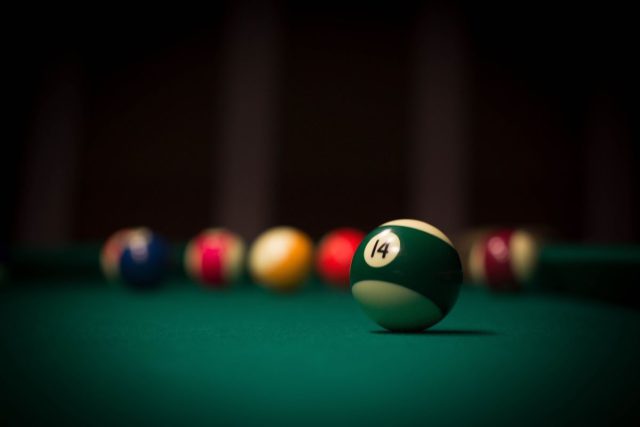In a world saturated with digital distractions and fleeting amusements, the pursuit of activities that stimulate our minds while offering a sense of enjoyment has become increasingly significant. Games have long been recognised not only as sources of entertainment but also as valuable tools for honing cognitive skills, particularly strategic thinking. Whether played casually with friends or approached with a competitive spirit, certain games have a remarkable capacity to enhance strategic thinking abilities, fostering critical decision-making, adaptability, and forward planning. Let’s delve into five diverse games that exemplify this enriching quality.
Chess
Widely regarded as the quintessential game of strategy, Chess has stood the test of time as an enduring challenge for players of all ages. Its simple yet profound ruleset belies the complexity that unfolds with each move. Chess demands strategic foresight, requiring players to anticipate their opponent’s moves while devising their own tactics. Each piece on the board possesses distinct abilities and limitations, necessitating careful consideration and long-term planning. Mastery of Chess not only sharpens analytical skills but also nurtures patience and resilience as players navigate through victories and defeats alike.
Go

Originating in ancient China, Go represents a fascinating blend of simplicity and depth. It is played on a grid board with black and white stones, the objective is to surround and capture territory while outmanoeuvring the opponent. What sets Go apart is its emphasis on spatial awareness and influence. Players must strategically position their stones to control key areas of the board while simultaneously thwarting their adversary’s advances. The seemingly infinite board permutations challenge players to think several steps ahead, fostering a deep appreciation for strategic planning and adaptability.
Poker
Beyond its reputation as a high-stakes gambling pastime, Poker offers a rich tapestry of strategic nuances that appeal to players worldwide. Central to Poker’s allure is the interplay between luck and skill as participants navigate through uncertain outcomes with calculated risk-taking. Successful Poker players master the art of bluffing, reading opponents, and managing probabilities, all while maintaining a disciplined approach to decision-making. The game helps to cultivate strategic thinking by encouraging players to assess risk, weigh potential outcomes, and adjust their tactics accordingly—a valuable skillset applicable beyond the gaming table.
Pool
Often overlooked in discussions of strategic games, pool—also known as billiards—possesses a subtle complexity that rewards strategic foresight and precision. Played on billiard tables in Melbourne and other parts of the world, with a cue stick and numbered billiard balls, the pool challenges players to clear the table by sinking balls into pockets according to specific rules. While seemingly a game of skilful shots, the pool also demands strategic planning. Players must anticipate the trajectory of each shot, considering the placement of remaining balls and potential obstacles on the table. Every move in the pool requires deliberation as players strategise not only to pocket balls but also to set up subsequent shots—a testament to the game’s strategic depth.
Diplomacy
In the realm of board games, Diplomacy reigns supreme as a masterclass in negotiation, betrayal, and strategic manoeuvring. Set against the backdrop of early 20th-century Europe, Diplomacy casts players as major powers vying for dominance through alliances and military conquest. Unlike many games, Diplomacy features no element of chance—success hinges entirely on players’ ability to forge alliances, outmanoeuvre rivals, and anticipate shifting political landscapes. The game’s open-ended structure encourages creative problem-solving and strategic thinking as players navigate through ever-changing alliances and betrayals, ultimately vying for global supremacy.
In a nutshell, games serve as more than mere diversions—they represent invaluable tools for enhancing strategic thinking and cognitive abilities. Whether it’s the calculated manoeuvres of Chess, the spatial awareness of Go, the risk assessment of Poker, the precision of pool, or the diplomatic intricacies of Diplomacy, each game offers its own unique challenges and rewards. By immersing ourselves in these strategic pursuits, we not only indulge our competitive spirits but also cultivate essential skills that transcend the gaming table, enriching our lives both intellectually and socially. So, the next time you gather with friends or family for a game night, remember that you’re not just playing—you’re sharpening your mind for the strategic challenges of life.


MOST COMMENTED
Featured
Games Boost Strategic Thinking
Fashion
Confidence Perception and Eye Color
Featured / Lifestyle
Balancing Personal and Career Goals
Lifestyle / Trends
Eco-Friendly Trends in Coffee Machines
Fashion
How to Look Fabulous in Summer
Lifestyle / Trends
A Guide to Garden Furniture Protection
Lifestyle / Travel / Trends
Brompton Bags for the Urban Explorer